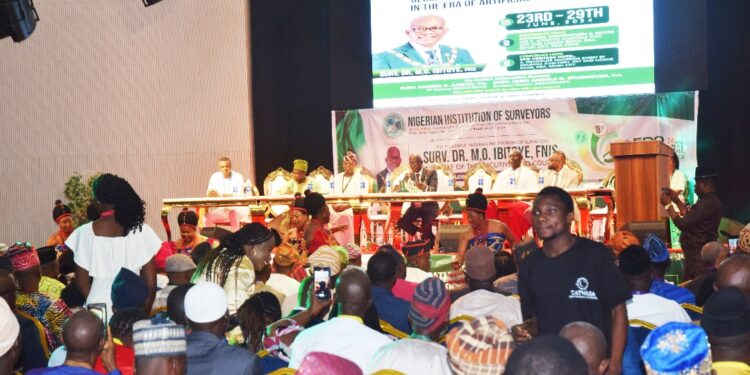By Abubakar Yunusa
The Surveyor General of the Federation, Surv. Abuduganiyu Adebomehin, has called on state governors to elevate their Surveyor General Offices to extra-ministerial status.
He emphasize that infrastructural development hinges on the expertise of surveying professionals.
Speaking at the 58th annual meeting of the Nigerian Institution of Surveyors (NIS) in Edo state, Adebomehin stressed, “Without surveying, nothing can be achieved.”
Sani Datti, head of press and public relations for the Surveyor General’s office, in a statement shared with ELANZANew highlighted the precision of the surveying profession.
He stated, “Surveying determines the positions of points, distances, and angles. It’s essential on land and sea. To see the unseen, you need surveying techniques. Precision in tasks, even robots delivering food, relies on surveying.”
NIS President, Surv. Dr. Matthew Ibitoye, noted, “The inability to identify ‘what’ and ‘where’ resources are impedes national development.”
He advocated for a comprehensive mapping program, underscoring that well-mapped countries are the most developed.
“Government must prioritize mapping to address environmental and developmental challenges,” he added.
Ibitoye urged the government to declare a State of Emergency on Mapping in Nigeria, aligning with President Bola Ahmed Tinubu’s Renewed Hope Agenda.
“Accurate, accessible spatial data is crucial for planning and development,” he said, calling for systematic efforts to update and expand mapping coverage for effective governance and investment.
This push for enhanced surveying and mapping underscores its critical role in national development and aims to position Nigeria as a prime global investment destination.











